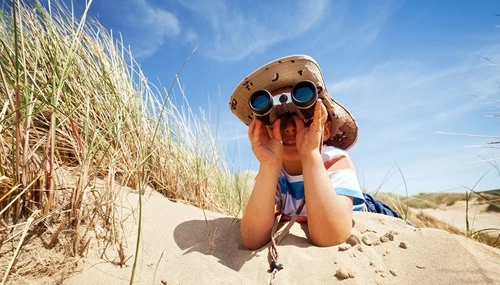No, it is not universally illegal to let your child play outside alone in the United States. However, the legality depends on factors such as the child’s age, maturity, location, and state laws. While many states don’t have specific laws prohibiting unsupervised outdoor play, parents can still face legal scrutiny or intervention from child protective services (CPS) if a situation is deemed unsafe.
Legal Framework Surrounding Unsupervised Outdoor Play
- Parental Rights vs. Child Welfare
- Parents have the right to make decisions about how they raise their children, including when they are ready to play outside alone. However, this right is balanced against the state’s responsibility to ensure child welfare.
- If a child is found in a situation considered neglectful or dangerous, authorities may step in, even if no specific law is violated.
- State Laws on Child Neglect
- Few states have explicit laws dictating the age at which children can be left unsupervised. Instead, child neglect laws are broad, allowing authorities to determine neglect on a case-by-case basis.
- For example:
- Maryland: Children under the age of 8 cannot be left unattended in a home or car, but there is no specific law about outdoor play.
- Illinois: The law specifies that children under 14 cannot be left alone for an unreasonable period without supervision, but the interpretation is subjective.
- “Reasonable Supervision” Standard
- Courts and CPS often use the “reasonable supervision” standard to assess whether allowing a child to play outside alone is neglectful. Factors include:
- The child’s age and maturity.
- The neighborhood’s safety.
- The duration and circumstances of unsupervised play.
- Courts and CPS often use the “reasonable supervision” standard to assess whether allowing a child to play outside alone is neglectful. Factors include:
Case Studies and Legal Precedents
- Free-Range Parenting Movement
- Cases like the Meitiv family in Maryland, who faced CPS intervention for letting their children walk home alone, sparked debates about parental rights and free-range parenting.
- Following such cases, some states, like Utah, passed laws explicitly protecting parents who allow children to play or walk outside alone if it is deemed safe.
- Safety Concerns vs. Parental Freedom
- Some interventions arise from well-meaning neighbors or bystanders calling authorities when they see unsupervised children. These reports can lead to investigations even if no laws are violated.
Risks and Benefits of Letting Kids Play Outside Alone
- Benefits
- Promotes independence and problem-solving skills.
- Encourages physical activity and outdoor exploration.
- Risks
- Exposure to potential dangers, such as traffic, strangers, or accidents.
- Risk of being reported to authorities if others perceive the situation as neglectful.
Tips for Parents Considering Unsupervised Outdoor Play
1. Assess Your Child’s Maturity: Consider whether your child can follow safety rules, handle emergencies, and make responsible decisions.
2. Evaluate Neighborhood Safety: Assess traffic patterns, crime rates, and community norms to determine whether the environment is conducive to safe outdoor play.
3. Set Clear Rules: Establish boundaries, such as how far the child can go and when to check in.
Teach your child to avoid talking to strangers and how to respond in emergencies.
4. Communicate with Neighbors: Let neighbors know your child is allowed to play outside alone to reduce the likelihood of misunderstanding or unnecessary reports.
Related FAQs
Q1. At what age can a child legally play outside alone?
Ans: There is no universal age, as laws vary by state. Generally, authorities assess the child’s maturity and the environment.
Q2. Can I get in trouble for letting my child play outside alone?
Ans: Yes, if someone reports the situation and authorities determine it to be unsafe, you could face a CPS investigation or legal consequences.
Q3. What is free-range parenting?
Ans: Free-range parenting emphasizes granting children independence and allowing them to engage in unsupervised activities appropriate for their maturity level.
Q4. What should I do if CPS investigates me for letting my child play outside alone?
- Cooperate with the investigation.
- Provide evidence of your child’s maturity and the safety precautions you’ve taken.
- Consult a family law attorney if needed.
Q5. Are there any states where free-range parenting is explicitly protected?
Ans: Yes, Utah passed a free-range parenting law in 2018, protecting parents from neglect charges when allowing children reasonable independence.
Conclusion
Letting your child play outside alone is not inherently illegal in the United States, but it requires careful consideration of the child’s maturity, the environment, and local laws. While most states don’t have specific restrictions, parents can still face legal scrutiny if a situation is deemed unsafe. By preparing your child and assessing risks, you can encourage independence while staying within legal and safety boundaries.


